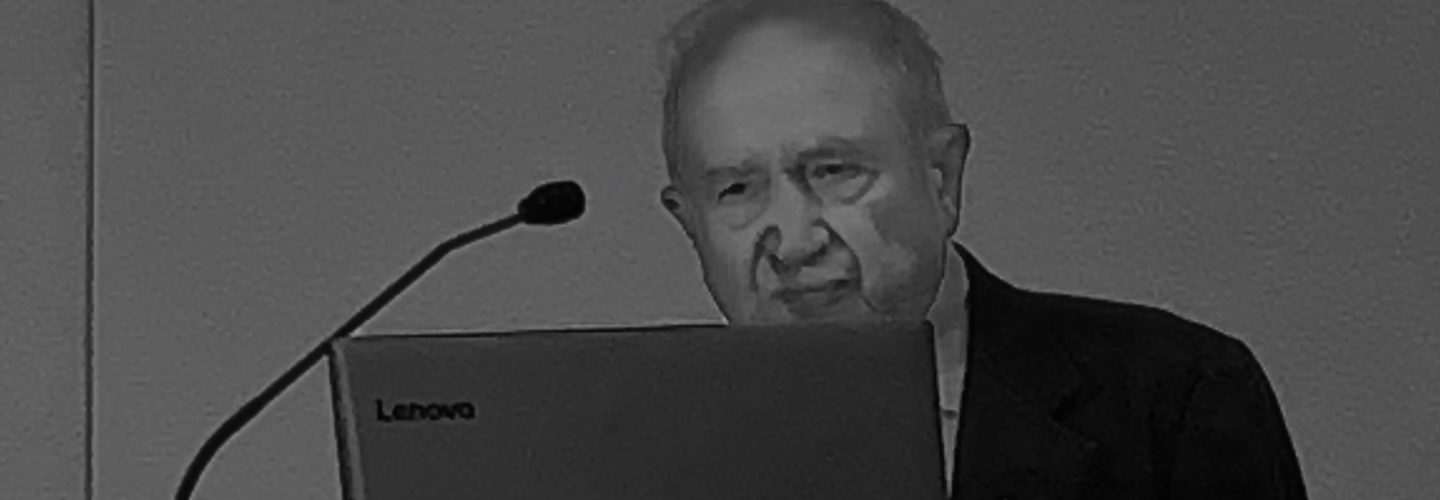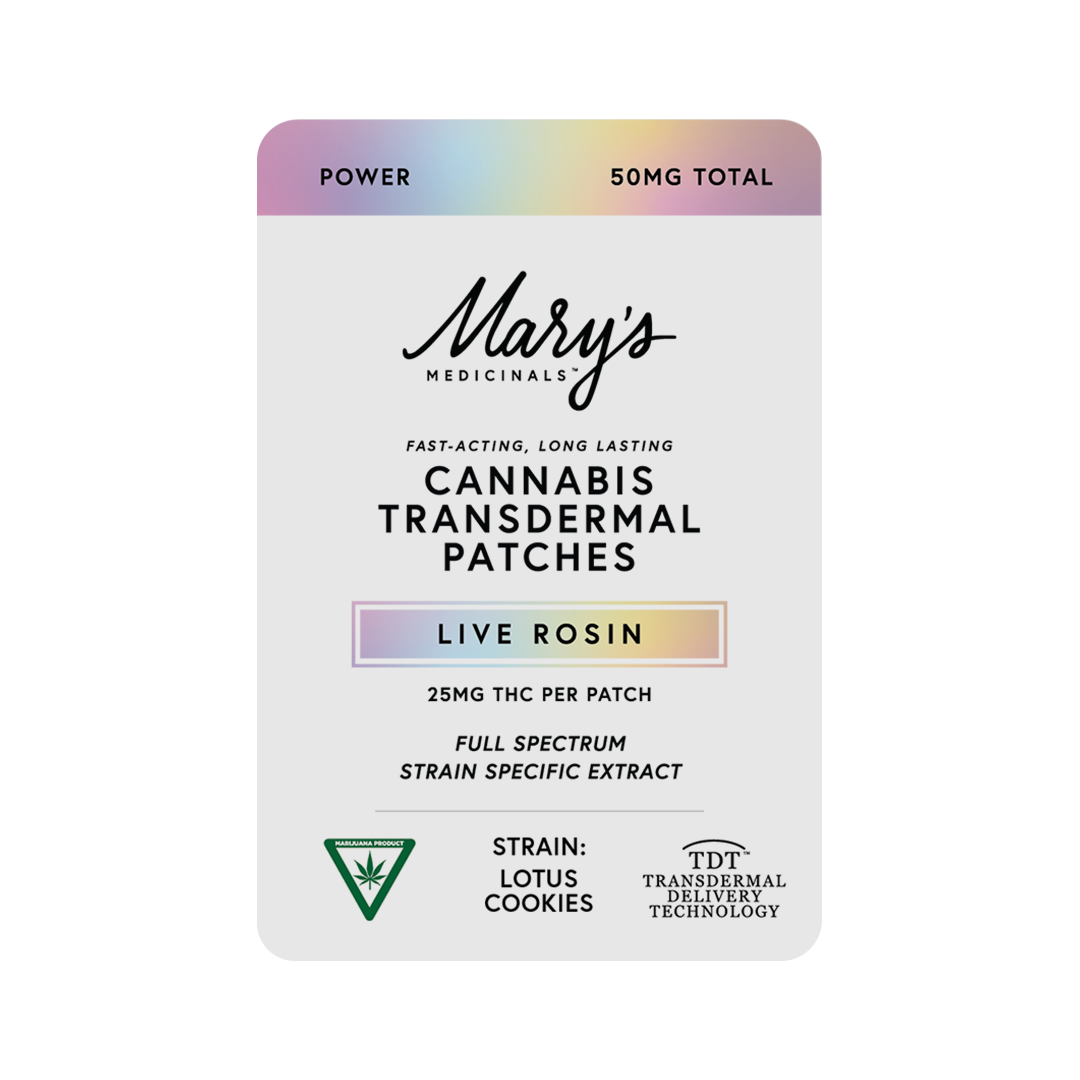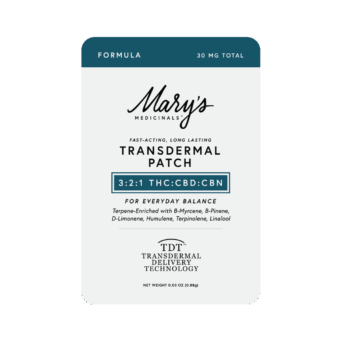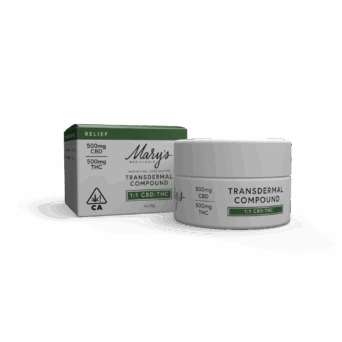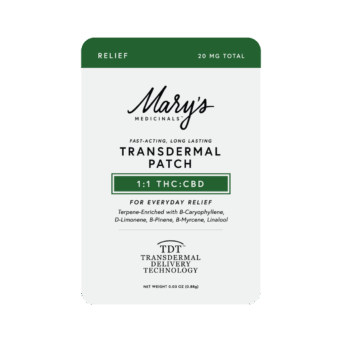Raphael Mechoulam appears to be enjoying his later years. The renowned Israeli researcher, now 89-years old, has been traveling far and wide to talk about his life-long companion, cannabis. He was just 35 years-old when he was the first to synthesize and elucidate the molecular structure of delta-9 THC. He would do the same with CBD.
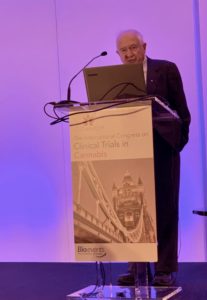

Mechoulam was the keynote speaker at The International Congress on Clinical Trials in Cannabis, held in London, Oct 24-25, 2019. Just a few weeks before you could find the octogenarian in Los Angeles at the MedCann meeting, he was in Berlin the month before that and so on. The grandfather of cannabis research is in high demand as a speaker and if you have heard him speak you can understand why.
Mechoulam’s current focus is on cannabis acids —THCa, CBDa, CBGa, and so on. It is not surprising, however, that someone who has lived as long as Mechoulam would turn a bit reflective and much of his speech dwelt on his past research that lay fallow for so many years. In particular he cited a 1980 study with some Brazilian colleagues which demonstrated in a small group (15 intractable epilepsy patients) that CBD could be an effective treatment for the seizure disorder. The results were so good that Mechoulam expected a larger clinical trial would quickly follow and then the drug would be “picked up” by a company and brought to market. But it would be thirty years before that additional study took place and that was only because of “social pressure in the U.S. from parents” of intractable pediatric epilepsy patients. Mechoulam, using a term of bewilderment and some despair, stated it was “beyond me why this should be.”
“Beyond me” was a term Mechoulam used several times in his speech as he reviewed various studies with cannabinoids that presented promising results. These included graft-versus-host disease (46% in control patients, 12% in patients with CBD); schizophrenia (CBD displayed a better side-effect profile than amisulpride); and Diabetes Type 1 (mice treated with CBD had 77% intact pancreas tissue vs. 5% in untreated mice). He noted how quickly insulin and penicillin were brought to the market on far less research, and concluded, once again, that is was just “beyond me” why these cannabinoids are still languishing in early clinical trials.
On the other hand, he noted CBD is now widely used by the public, “ridiculously so’ he said. Like many of us, Mechoulam wondered aloud what possible effect CBD placed in “underwear and lipstick” could possibly have?
At the end of his talk, Mechoulam reflected on the possibility of a second immune system, as yet undiscovered, that works in tangent with the endogenous cannabinoid system. It is not far fetched when you remember that the ECS was discovered only twenty years ago and has just begun to be thoroughly studied.
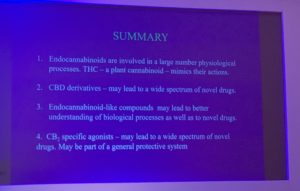

At the conclusion of his speech Mechoulam wandered into some truly fantastic thinking about the “molecular basis of individuality.” He wondered “if it is just possible that these 100 endogenous-like compounds, many of which have central nervous effects,” contribute to personality traits such as aggression. Mechoulam readily admitted “we know essentially nothing” but concluded, with a wry smile, that “it will be a lot of work trying to find out.”❖
Next up: More from The International Congress on Clinical Trials in Cannabis. – A UK Perspective.



